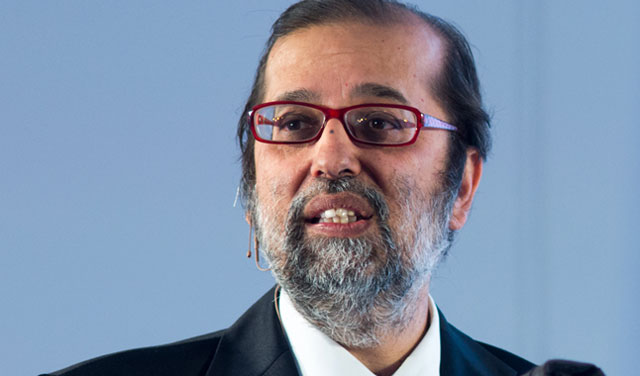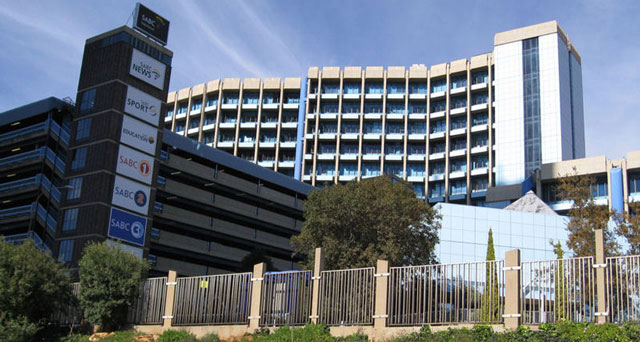
The SOS Coalition, which represents trade unions, community media and content producers hoping to support quality public broadcasting in South Africa, has slammed President Jacob Zuma’s decision to dump his communications minister, Yunus Carrim, instead creating two new departments headed by two new ministers.
The Coalition has accused Zuma of subverting the ANC’s own policy resolutions through the move and undermining the constitutional and statutory imperative to have an independent public and community broadcasting sector.
Trade union federations Cosatu and Fedusa are members of the Coalition. Others include trade unions Bemawu and Mwasa as well as independent film and television production organisations, the Freedom of Expression Institute and Media Monitoring Africa.
On Sunday, Zuma announced he was splitting the department of communications, creating a new department called telecommunications and postal services headed by former state security minister Siyabonga Cwele. The department of communications has now been transformed into an information ministry that includes the SABC, government’s communications arm, GCIS, communications regulator Icasa and Brand South Africa. Critics have already dubbed it the “department of propaganda”.
“Regrettably, instead of ensuring stability in a ministry that has been beset by scandal and the turbulence caused by five ministers in five years, Zuma has not only chosen to release the hard-working Carrim, from his service, but also redefined the role and mandate of the communications ministry,” the SOS Coalition says in a statement.
“It is the Coalition’s view that in his short term of service, Carrim was a singularly stabilising force in the ministry, demonstrating effective and visionary leadership, particularly in his efforts to speed up the long-overdue digital migration process that has been retarded by long-standing conflict between broadcasters and electronics manufacturers,” it says.
“It strikes us as absurd that he would not be permitted to see his bold plan of action to release the blockages in the migration process and give people better access to better broadcasting services. Indeed, this is another case of moving five steps back to move one step forward for broadcasting.”
Even more concerning, the Coalition says, is the “reorientation of the ministry’s mandate from developing and overseeing the implementation of policy that enables a vibrant communications sector to one that drives the agenda of a ‘good story to tell’”.
“The absorption of what should be wholly independent institutions such as the SABC, the Media Development & Diversity Agency and Icasa into this ministry must concern all South Africans,” it says.
The SOS Coalition says it wants to know whether the changes at the communications ministry will mean that the “captured SABC will be forced to buckle under the call for 70% ‘good news’” and whether the “vulnerable and contested community broadcasting sector should brace itself for assumption into the state machinery instead of being beholden to the communities they serve”.
It also asks whether there is “any hope for Icasa to be given the institutional independence, power and teeth it so sorely needs and is required by the constitution and legislation to truly be a regulator for the people”.
“All of these institutions, and particularly the SABC, have been under assault by both political and commercial forces for years, and with no intervention from government when it mattered most.

“Indeed, the reorientation of the communications ministry not only has the practical implication of undermining the constitutional and statutory imperative to have an independent and people-centred public and community broadcasting sector, but also subverts the ANC’s own policy resolutions which have been consistently adopted in successive policy conferences and promised by high-ranking office bearers, including the incumbent deputy president, Cyril Ramaphosa, as far back as in 1992.”
Zuma’s intention, the Coalition argues, is to “denude our public broadcasters and regulator bare of any independence and power they might have, and retain them as organs of the state”.
“This transformation of the communications ministry into one of propaganda is certainly not a good story to tell and SOS will continue to advocate for the transformation of the SABC and Icasa into [constitutionally protected and independent] chapter 9 institutions in order to free them from the grip of state and commercial control,” it says.
The organisation says, too, that is “alarming” that in the era of convergence, telecoms and postal services should be split from the rest of the sector.
“This fragmentation can only be read as irrational particularly in light of the necessary international move to bring ICTs, which include broadcasting services, in line with and under converged legislation, policy and regulation,” it says.
“Indeed, even locally, it fundamentally undermines the ICT policy review process and treats its recommendations with contempt.”
There are also big concerns about what happens next in the long-delayed digital terrestrial television migration project. The Coalition predicts an “impending disaster of confusion and conflict” between the two new ministries.
“How does the president expect these ministries to develop policies in respect of anything that remotely bridges or unifies broadcasting with telecoms, broadband and the Internet?”
It says the move by Zuma demonstrates that “government’s project for state industrialisation has entirely overtaken the critical need our society has for democratised information and communication technologies and services”. — © 2014 NewsCentral Media

